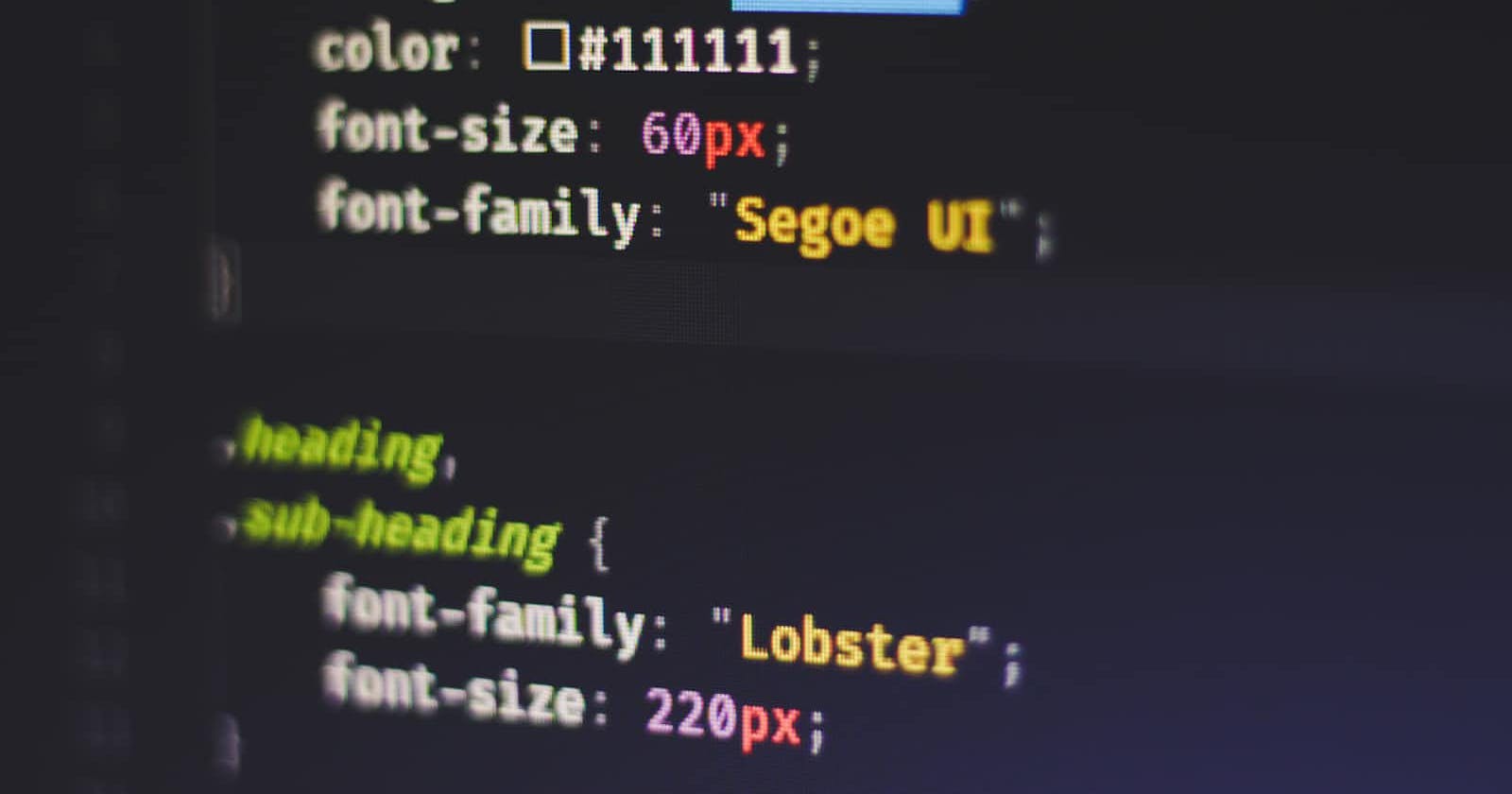
Photo by Ferenc Almasi on Unsplash
Why Writing Custom CSS is Much Better Than Using Any Other CSS Frameworks
Exploring the Advantages of Writing Custom CSS and Drawbacks of Using CSS Frameworks for Web Development
Cascading Style Sheets (CSS) are an essential part of modern web development, used for styling and formatting web pages. There are many CSS frameworks available that developers can use to quickly build visually appealing web pages. However, there are also many advantages to writing custom CSS, and in this article, we'll explore why writing custom CSS is often a better choice than using any other CSS framework.
Pros of Writing Custom CSS
Flexibility and Customization
One of the biggest advantages of writing custom CSS is the flexibility and customization it provides. When you write custom CSS, you have complete control over every aspect of the design, from the layout to the typography. This level of control allows you to create unique and highly customized designs that perfectly fit your needs and the needs of your users.
Performance
Another advantage of writing custom CSS is that it can improve the performance of your website. CSS frameworks are often bloated with features that you may not need, which can slow down your site's load time. When you write custom CSS, you can write code that is specific to your needs and optimized for performance. This can help improve your site's load time and provide a better user experience.
Learning and Skill Development
Writing custom CSS can also help you develop your skills as a developer. When you write custom CSS, you have to understand the underlying concepts of CSS and how it works. This can help you develop a deeper understanding of CSS and improve your skills as a developer.
Better Code Control
When you write custom CSS, you have better control over the code that is generated. This can help you maintain better code quality, which can lead to fewer bugs and better maintainability over time.
Cons of Using CSS Frameworks
Limited Customization
One of the biggest disadvantages of using CSS frameworks is the limited customization they provide. CSS frameworks are designed to be used by a wide range of developers, so they often provide a generic set of features that may not be suitable for your specific needs. This can limit your ability to create unique and highly customized designs.
Bloated Code
CSS frameworks can also generate a lot of bloated code that you may not need. This can lead to slower load times and a less optimal user experience. Additionally, the more code you have, the more difficult it can be to maintain and debug over time.
Learning Curve
CSS frameworks can have a steep learning curve, especially for developers who are new to CSS. Frameworks often have their own conventions and syntax, which can take time to learn and master.
Dependency Management
Using a CSS framework can also introduce dependency management issues. If the framework is updated or discontinued, it can break your website and require you to spend time updating your code to work with the new version or switching to a new framework altogether.
Conclusion
While CSS frameworks can be useful in certain situations, they are not always the best choice for every project. Writing custom CSS can provide greater flexibility, customization, and performance, as well as help you develop your skills as a developer. On the other hand, CSS frameworks can provide a quick and easy solution for developers who are short on time or new to CSS. Ultimately, the choice between writing custom CSS and using a CSS framework will depend on your specific needs and the needs of your users.

